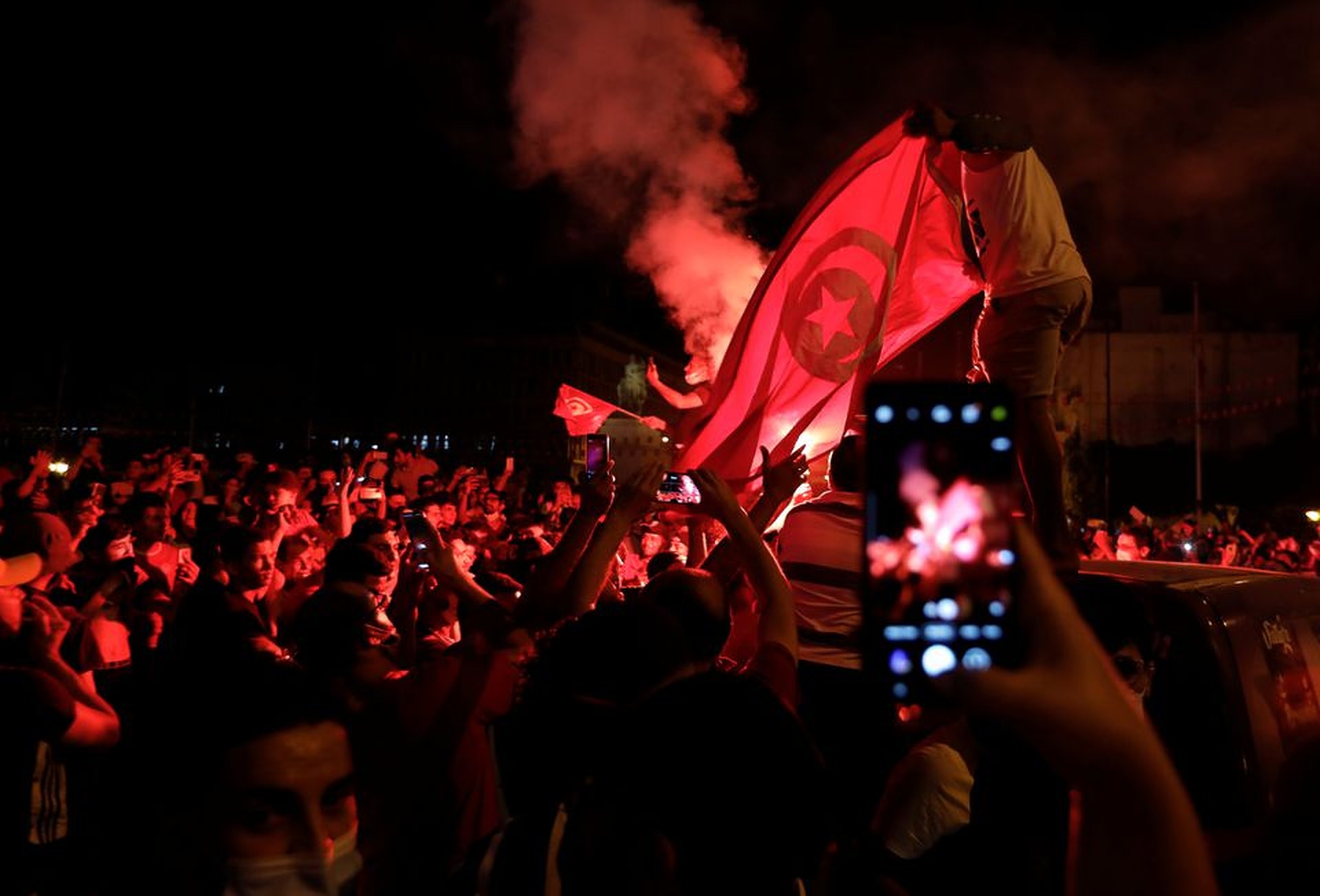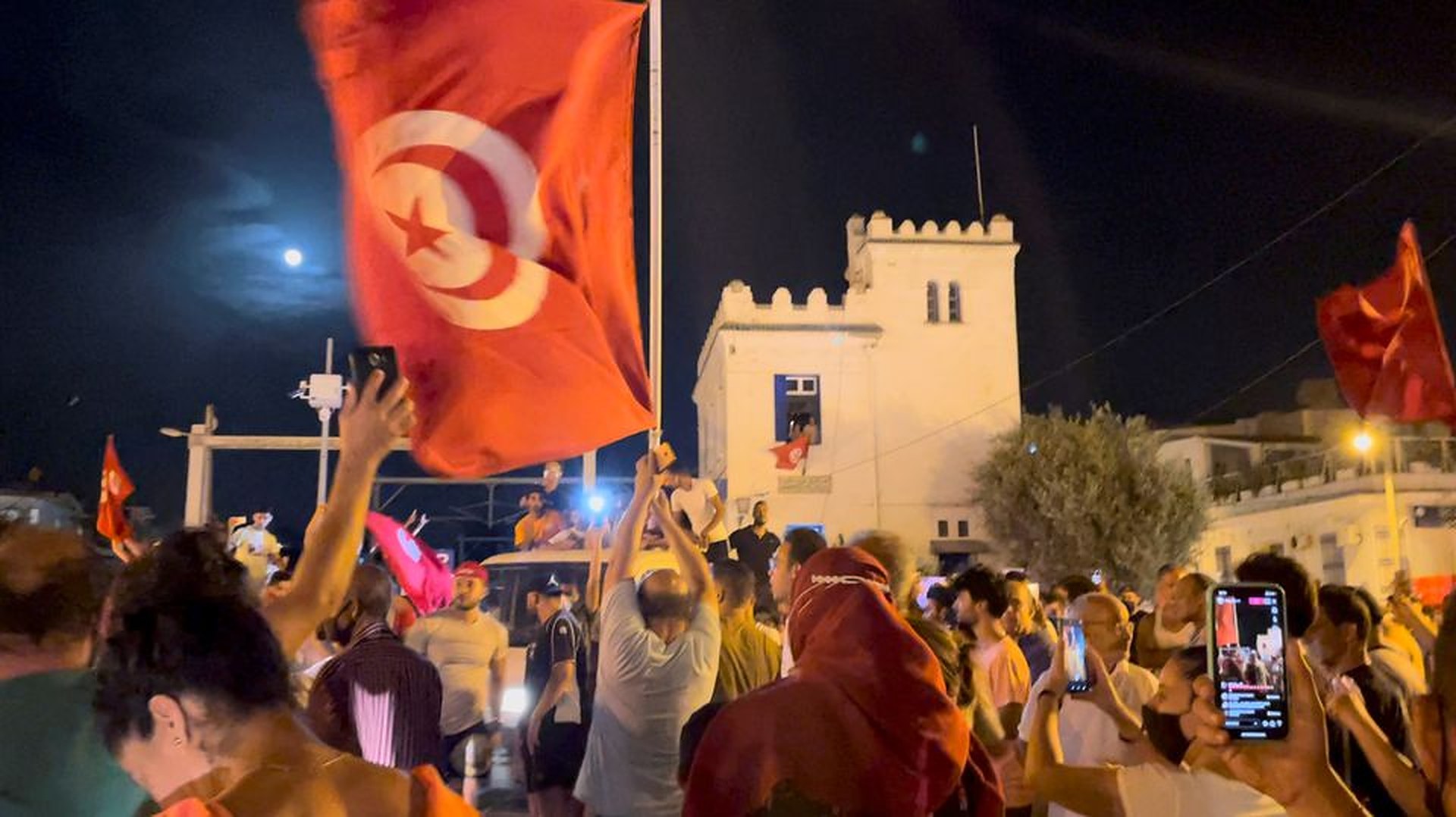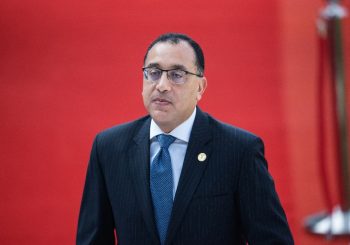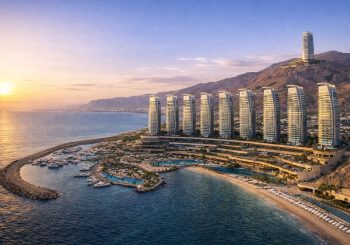Tunisia’s president fired the prime minister and froze the activities of parliament on Sunday following protests in several Tunisian cities demanding the government step down due to failures in handling the COVID-19 crisis.
In a statement late on Sunday, President Kais Saied noted that his actions are in line with Article 80 of the constitution, and also cited the article to suspend to freeze the parliament for a period of 30 days.
Following the news, large crowds of people flooded the capital and other cities expressing support for Saied’s decision, as scenes of cheering, waving flags and honking car horns were shared on social media.
The decision came after a day of protests against the government and the biggest party in parliament, the Islamist Ennahda, due to the rapid increase in COVID-19 cases and failing to effectively govern the country.
Parliament Speaker Rached Ghannouchi, the head of Ennahda Islamist Party, and other opponents decried the moves as a coup and an assault on democracy, and called on Tunisians to come into the streets to stop what he called a coup.
However, Saied warned in a televised statement against any violent response and that the armed forces will respond, which was followed by military vehicles surrounding the parliament and the state television building.
Following the Arab Spring, Tunisia was regarded as the only North African and Arab country the only fully democratic state in the region, according to the Economist Intelligence Unit’s Democracy Index.

The Ennahda Movement, which was formerly banned under the Ben Ali regime, came out of the elections in 2011 as the largest party, with 89 seats out of a total of 217. In 2014, Beji Caid Essebsi was sworn in as President as the first freely elected president of modern Tunisia.
The president and the parliament were both elected in popular votes in 2019, and Prime Minister Hichem Mechichi took office last summer.
These events come amid attempts by Mechichi to negotiate a new loan with the International Monetary Fund (IMF) to solve Tunisia’s economic crisis and budget deficit, yet rising COVID-19 infections along with economic insecurities sparked anger against the government.







Comments (4)
[…] Source link […]
[…] Legu la kompletan artikolon en la originala lingvo : English […]